Wanglei Feng
EMO: Edge Model Overlays to Scale Model Size in Federated Learning
Apr 01, 2025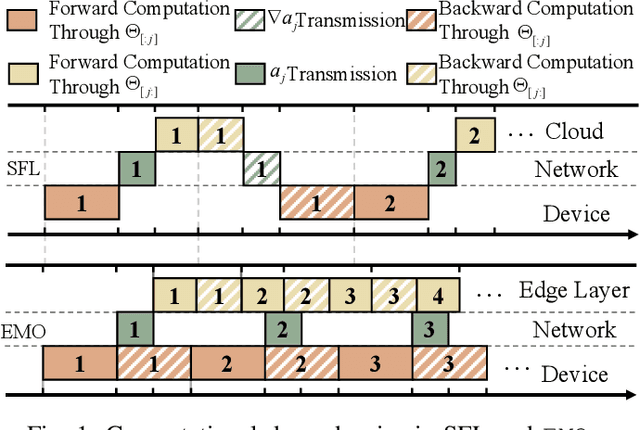
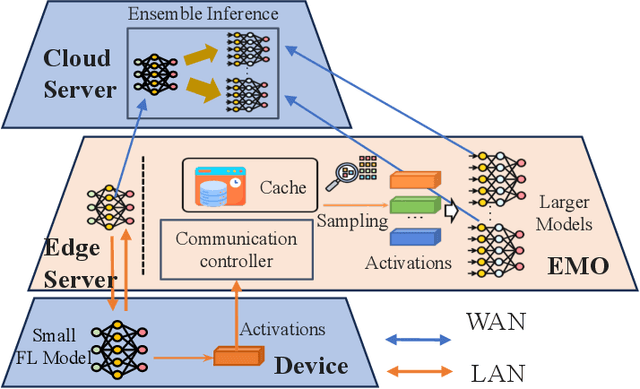

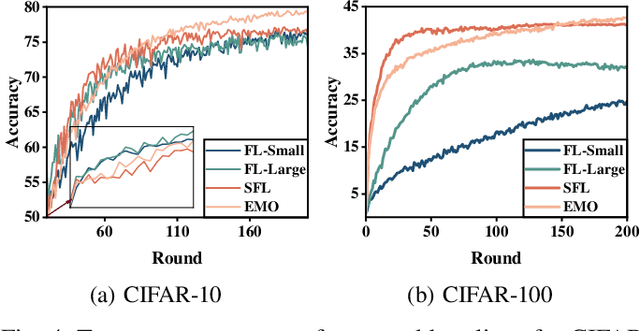
Abstract:Federated Learning (FL) trains machine learning models on edge devices with distributed data. However, the computational and memory limitations of these devices restrict the training of large models using FL. Split Federated Learning (SFL) addresses this challenge by distributing the model across the device and server, but it introduces a tightly coupled data flow, leading to computational bottlenecks and high communication costs. We propose EMO as a solution to enable the training of large models in FL while mitigating the challenges of SFL. EMO introduces Edge Model Overlay(s) between the device and server, enabling the creation of a larger ensemble model without modifying the FL workflow. The key innovation in EMO is Augmented Federated Learning (AFL), which builds an ensemble model by connecting the original (smaller) FL model with model(s) trained in the overlay(s) to facilitate horizontal or vertical scaling. This is accomplished through three key modules: a hierarchical activation replay cache to decouple AFL from FL, a convergence-aware communication controller to optimize communication overhead, and an ensemble inference module. Evaluations on a real-world prototype show that EMO improves accuracy by up to 17.77% compared to FL, and reduces communication costs by up to 7.17x and decreases training time by up to 6.9x compared to SFL.
FLMarket: Enabling Privacy-preserved Pre-training Data Pricing for Federated Learning
Nov 18, 2024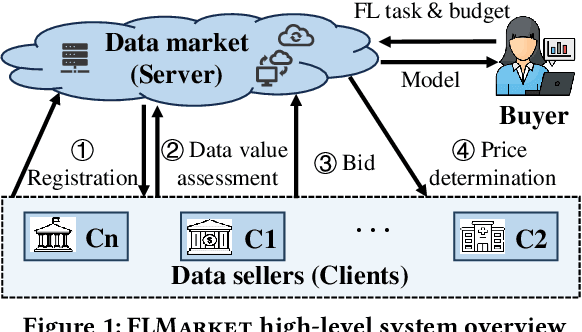
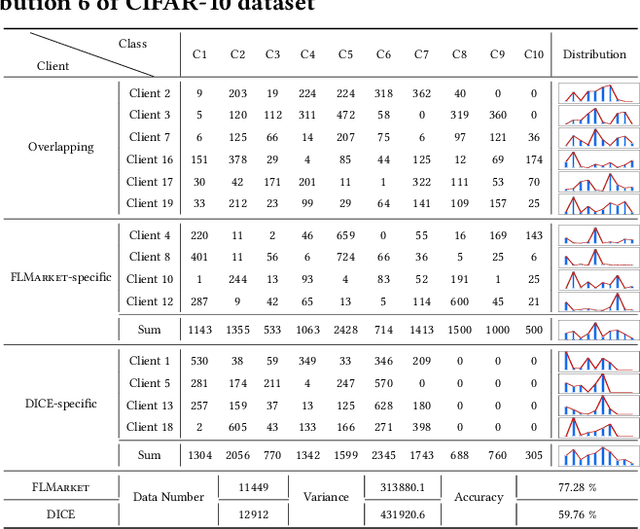
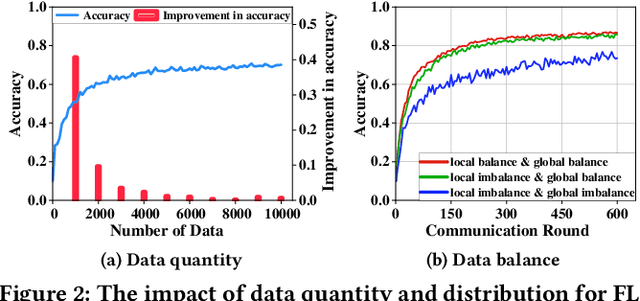
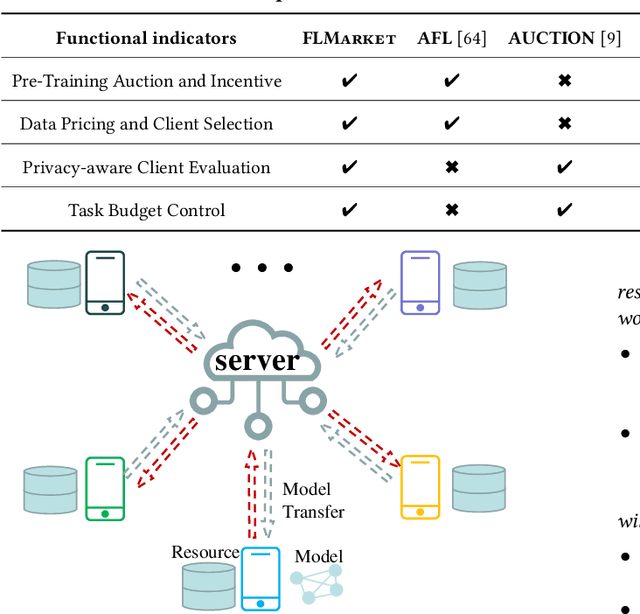
Abstract:Federated Learning (FL), as a mainstream privacy-preserving machine learning paradigm, offers promising solutions for privacy-critical domains such as healthcare and finance. Although extensive efforts have been dedicated from both academia and industry to improve the vanilla FL, little work focuses on the data pricing mechanism. In contrast to the straightforward in/post-training pricing techniques, we study a more difficult problem of pre-training pricing without direct information from the learning process. We propose FLMarket that integrates a two-stage, auction-based pricing mechanism with a security protocol to address the utility-privacy conflict. Through comprehensive experiments, we show that the client selection according to FLMarket can achieve more than 10% higher accuracy in subsequent FL training compared to state-of-the-art methods. In addition, it outperforms the in-training baseline with more than 2% accuracy increase and 3x run-time speedup.
 Add to Chrome
Add to Chrome Add to Firefox
Add to Firefox Add to Edge
Add to Edge